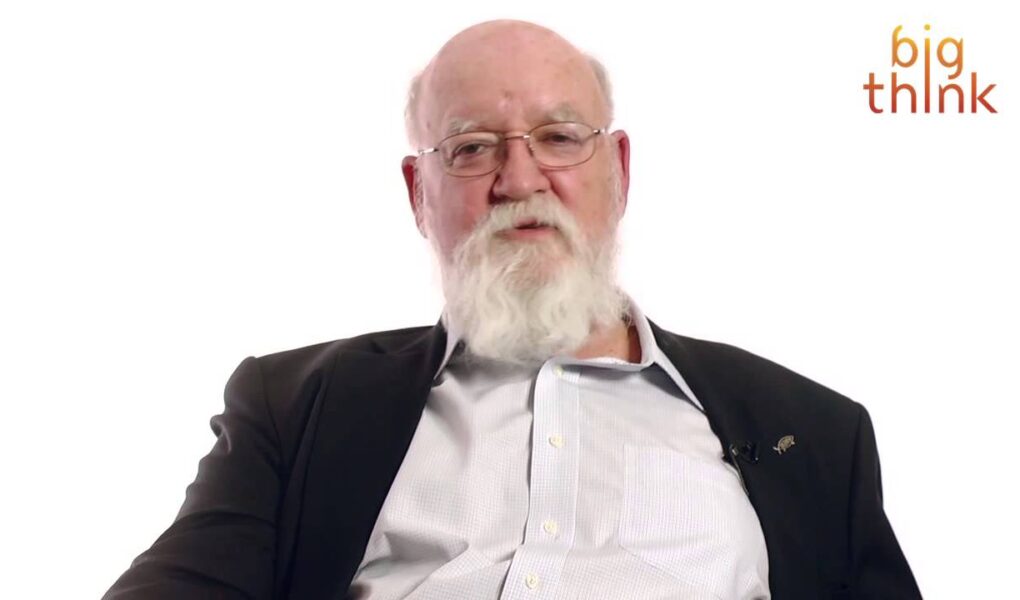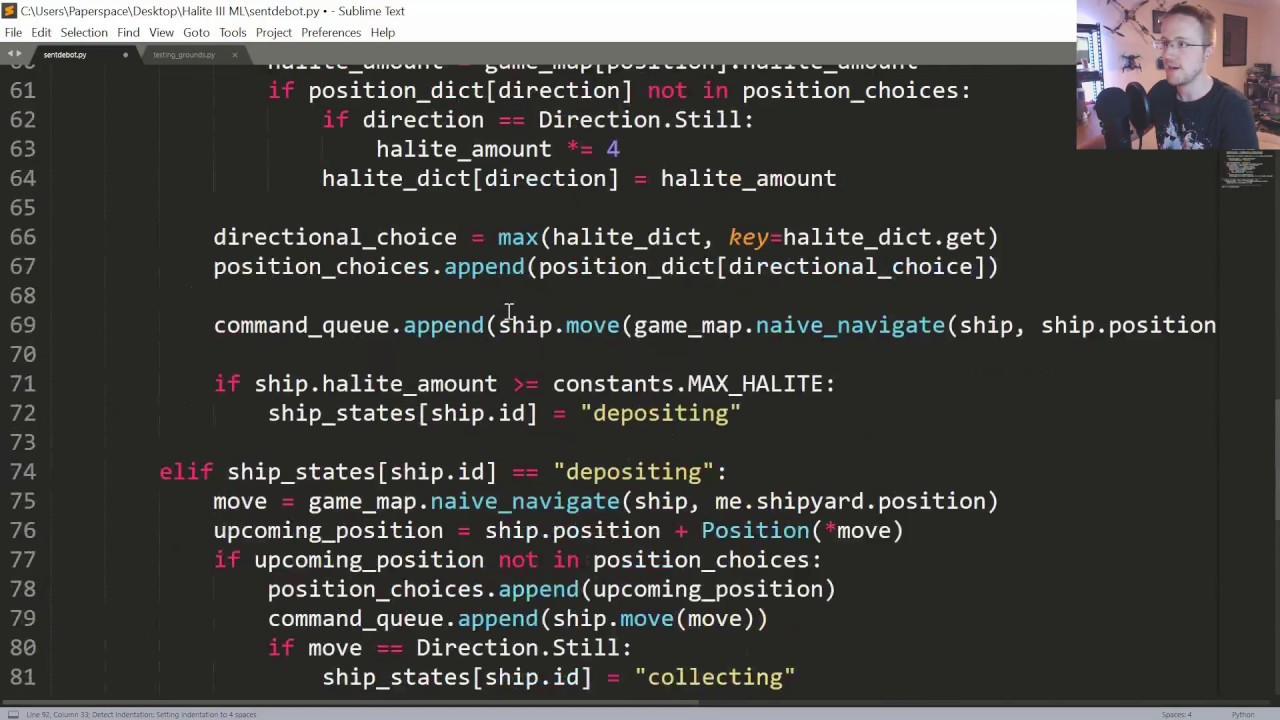Big Think
Daniel Dennett Dissects a Bad Thought Experiment
Watch the newest video from Big Think: https://bigth.ink/NewVideo
Join Big Think Edge for exclusive videos: https://bigth.ink/Edge
———————————————————————————-
Schrödinger’s cat. The prisoner’s dilemma. The trolley problem. These are brand names as much as they’re philosophical thought experiments. Philosopher Daniel Dennett explains the importance of concocting an attractive package in which to wrap your argument. At the same time, Dennett warns that this can backfire and, to demonstrate, he dissects one of his “favorite bad thought experiments,” an investigation of free will based on the sci-fi film “The Boys From Brazil.”
Five weird thought experiments to break your brain – Big Think ›
———————————————————————————-
DANIEL DENNETT:
Daniel C. Dennett is the author of Intuition Pumps and Other Tools for Thinking, Breaking the Spell, Freedom Evolves, and Darwin’s Dangerous Idea and is University Professor and Austin B. Fletcher Professor of Philosophy, and Co-Director of the Center for Cognitive Studies at Tufts University. He lives with his wife in North Andover, Massachusetts, and has a daughter, a son, and a grandson. He was born in Boston in 1942, the son of a historian by the same name, and received his B.A. in philosophy from Harvard in 1963. He then went to Oxford to work with Gilbert Ryle, under whose supervision he completed the D.Phil. in philosophy in 1965. He taught at U.C. Irvine from 1965 to 1971, when he moved to Tufts, where he has taught ever since, aside from periods visiting at Harvard, Pittsburgh, Oxford, and the École Normale Supérieure in Paris.
His first book, Content and Consciousness, appeared in 1969, followed by Brainstorms (1978), Elbow Room (1984), The Intentional Stance (1987), Consciousness Explained (1991), Darwin’s Dangerous Idea (1995), Kinds of Minds (1996), and Brainchildren: A Collection of Essays 1984-1996. Sweet Dreams: Philosophical Obstacles to a Science of Consciousness, was published in 2005. He co-edited The Mind’s I with Douglas Hofstadter in 1981 and he is the author of over three hundred scholarly articles on various aspects on the mind, published in journals ranging from Artificial Intelligence and Behavioral and Brain Sciences to Poetics Today and the Journal of Aesthetics and Art Criticism.
Dennett gave the John Locke Lectures at Oxford in 1983, the Gavin David Young Lectures at Adelaide, Australia, in 1985, and the Tanner Lecture at Michigan in 1986, among many others. He has received two Guggenheim Fellowships, a Fulbright Fellowship, and a Fellowship at the Center for Advanced Studies in Behavioral Science. He was elected to the American Academy of Arts and Sciences in 1987.
He was the Co-founder (in 1985) and Co-director of the Curricular Software Studio at Tufts, and has helped to design museum exhibits on computers for the Smithsonian Institution, the Museum of Science in Boston, and the Computer Museum in Boston.
———————————————————————————-
TRANSCRIPT:
Daniel Dennett: Scientists and philosophers like to think that they’re very sober, rational people who are above the need to advertise. And yet, if you look closely you’ll see that they often go to great lengths to come up with a vivid memorable term, a label for their theory or a name for it that will stick in people’s head. In other words, they’re trying to develop a brand name or advertising or trademark for their view. And we should recognize that’s a good thing to do if you’re going to run an example or if you’re gonna run an argument — try to make it as easy as possible for the audience or the reader to keep track of the elements.
Don’t call them A, B, C, D and E. Call them Bill and Arthur and Freddie and so forth. But, of course, that can backfire on you, too. Or it can be misused. One of my favorite bad thought experiments — bad intuition pumps is one in a very influential paper by Greene and Cohen published in the Proceedings of the Royal Society on what neuroscience tells us about free will. And this is The Boys from Brazil. And in this thought experiment we’re to imagine — it’s inspired by the hokey science fiction film The Boys from Brazil about some evil doctors who clone Hitler and they’re trying to make Hitler clones. But in this telling they create a human being who’s been designed by their evil intentions to live a life of crime — to do evil things.
But just as rational as anybody else, he’s very much controlled. He’s sort of a designed psychopath. And they call him Mr. Puppet. And they describe Mr. Puppet and Mr. Puppet goes out and commits a crime. And they appeal to the readers ….
To read the transcript, please go to https://bigthink.com/videos/daniel-dennett-on-thought-experiment-details
Source




I will explain. Dennet says certain specifics of the thought experiment are irrelevant. Here's why. The thought experiment by the neuroscientists was an intuition pump to lend credence to determinism. If there is only determinism then evil doesn't exist and is only an illusion. So that leaves no evil doctors, and no evil puppet to do evil that doesn't exist.
I respect the field of neuroscience, but that was pretty bad. Besides. Who didn't notice the name Mr. Puppet is the b.s. condiment of the whole rethoric sandwich?
Minor side issue… Dennett made an error in considering the option of exonerating the 'guilty' person when he asked 'does this mean he is not responsible and shouldn't be punished?'
Responsibility and punishment are separate issues. Yes, a completely deranged person beyond self control is not responsible, he is irresponsible by definition. But, of course, you don't leave a violent psychopath on the streets.
Pretty definitive proof that a hypothetical can't refute another hypothetical. Asking "shouldn't he be held responsible" seems to be all that is sufficient in Dennett's mind to justify the existence of free will (a concept utterly and systematically debunked by Sam Harris).
Intuition pump? Does the concept of a thought experiment really need Dennett's new branding? What point does the new label serve aside from the man's own claim to it? Regardless, if were speaking in terms of freewill as opposed to determination based in causation, which packaging aside we definitely are, no one regardless of circumstance is freely responsible for their actions. Dennett has no real refute of the central concept. This is 6 minutes of self promotion and defensive deflection.
This was really great. Thank you for enlightening me!
Does a correlation exist between the use of pronouns and the probability of straw-man argumentation?
Because I've never heard Prof Dennette speak in such generic terms as he has here. What was his point… to tell us his favorite bad-thought-experiment, by saying "them" and "they" who have it all wrong?
Did I miss his supporting evidence? Seems like Dennett dissected nothing. Did he blather so much vagueness in his past?
Some people seem to think that Dennett is making unfounded assumptions (like the fact that "Mr. Puppet" was created by evil scientists is irrelevant) when in fact it is the authors of the thought experiment which he is criticizing who are making these assumptions. The authors are using the thought experiment to say that we all are like Mr. Puppet and Dennett disagrees and says if you change these "details" which the authors say are irrelevant (they must be for the thought experiment to work) we don't come to the same conclusion.
It's funny that he talked about the effort by scientists/philosophers to come up with catchy "trademark" phrases and such since he has attempted to re-label the term "thought experiment" as "intuition pump". Near the end, his example assumes that a Harvard graduate would somehow never manage to learn societies general moral and legal expectations. This is, of course, gibberish; nowhere on the path to (or through) Harvard is likely to meet the "morally indifferent" qualifier of the original thought experiment. I'd expect better than a Straw Man from such an accomplished thinker.
He may be responsible, but that doesn't make him the cause of his acts.
Wittgenstein said it better. It's cute when empiricists try to philosophize and obfuscate ideas that have already been handled by their betters.
Just the fact that he's called mister puppet is already begging the question.
Dennett is the living proof that philosophy still matters. Understanding the pitfalls of language and logic, philosophy provides you with a framework. I like both Sam Harris and Dan Dennett and their "fight" is a joy for those who wish to understand more about how we can improve our thinking skills far beyond our empirical knowledge. Thank you, Dan!
I feel like the game changer is tha fact that "Mr Puppet" is artificially designed to commit evil, whereas "Cpt. Autonomy" is 'in a situation where he might be prone to behave antisocial"; in the end mr Dennet just put a lot of attention on details he himself claimed to be irrelevant, to change one that is vital to the whole reasoning, if I got that right..
Nonetheless an interesting video
Dennett is wrong. The thought experiment as he described it was a thought experiment. It is a test/explanation of moral reasoning, and as such, it is only useful if it puts your moral reasoning to the test. The whole point of the thought experiment is to SEE IF YOU CAN imagine a hypothetical scenario in which your moral reasoning doesn't seem to hold up. Using "irrelevant" details to create the scenario doesn't make it a bad thought experiment. In fact, if one can show that all you have to do is change immaterial details about a situation in order to cast doubt upon a moral belief that was thought to be common sense, then it is a very good thought experiment because it shows there is more discussion that needs to be had.
Since most people consider it self-evident that crime must be punished, "The Boys from Brazil" is a good moral thought experiment because it challenges that notion. It certainly doesn't prove conclusively that crime shouldn't be punished, but it shows that the prevailing moral belief deserves more consideration than most people give. Dennett's version of the thought experiment, which is designed to provoke a response that most people already think is the right one, is a bad thought experiment because it only provokes the same thoughts most people have anyway.
I value the disagreement between Harris and Dennett a lot. Having different opinions is what has gotten us this far. However, when someone is as CLEARLY wrong as Dennett, they should admit it…. It boggles the mind how much he has missed Harris' point.
This guy is flawless at making a point.
I feel this argument completely skirted the issue.
What matters is what the person did is a consequence of his past and the laws of nature. That's why he is not morally responsible. And Dennett even agrees but then goes on to redefine free will and moral responsibility.
But the trouble is most people just assume he means we have free will and moral responsibility in the ordinary sense just about everybody believes in.
3:11 — In the video, he doesn't say why the evil scientists' intent is irrelevant. I suspect that he does provide an argument in written form somewhere, but here, it's just a statement, and it's not self-evident. If someone designs a machine to cause harm and it then causes the harm it was designed to cause, we'd blame its designer and/or its users, not the machine. The question then becomes, is there a fundamental difference between a person designed to be a criminal by conscious intention, and someone who happens, through no-one's design, to have criminal tendencies. It might be true that there's no difference, but it's not self-evidently true